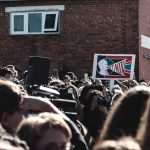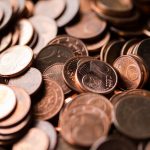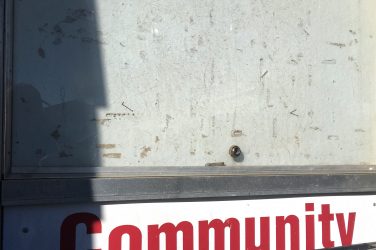What is our life if not a series of decision? We decide what we want to eat in the morning for breakfast, if we want to go for a run after work or what time we go to bed. Some decisions are quick, like which trousers to put on, others take longer, such as agreeing what movie to watch on Netflix.
Most of the decisions we face, we handle on our own, but for some we need advice. For those, often, life changing choices we seek validation, a new perspective or simply we want to share the burden of the responsibility. During my phases of indecisiveness, a commonly handed out advice is : listen to your gut. Easier said than done, because in many decision-making processes my brain holds my gut hostage – and my brain is changing opinions a lot. It often takes some time until my gut is empowered enough to make itself heard, but once it finally happens, it is usually a deep feeling of satisfaction and absolute certainty.
The other day I was asked by a friend to give advice on weather or not to change jobs. The current job they’re at is good, but the new offer might be better. The emphasise lies on “might”. How can we make a decision if we don’t know what to expect? Joshua Rothman pursued this questions in his article “The art of decision making” in the New Yorker. He analyses how we make decisions and if we are really in charge of the way we change.
We like to be in control and when making decisions we’re under the illusion that we have control over our life, the way we are and our surroundings. But more often than not we are overwhelmed by the choices in front of us and are afraid to make the “wrong” decision. The freedom of choice has become the fear of choice. It is time to not only reflect on the decisions we make, but also to contemplate the decision-making process itself. Why? The author summarises it perfectly: “Choices are constrained by earlier choices; facts go undiscovered, ignored, or misunderstood; decision-makers are compromised by groupthink and by their own fallible minds.”
We like to be in control and when making decisions we’re under the illusion that we have control over our life, the way we are and our surroundings.
We are bound by our past and unknown of our future which makes choosing an unsteady and nerve-wrecking business. However, we are being confronted by decisions all the time, especially decisions we have never experienced before and for which we don’t know the outcome? This is true for having a child or for Brexit.
Elin Ersson, a young Swedish activist who refused to sit down on a plane in July 2018 to block the deportation of an Afghan refugee, had to face an unprecedented decision. Like many of us, I watched the Facebook live stream and felt proud of what she was doing. In the article The Undaunted in DIE ZEIT, the author Khuê Phạm explains how the Swede came to be on the plane and the circumstances that lead to it, but also how it came about that she ended up defending a man convicted of beating his wife and children. What happened to her and the refugee she was meant to save from deportation but ended up not being on the plane? Why did she decide to stand up for a person she has information on and what must have been going through her head in the seconds that she had to make her choice?
She did not know what would happen then and does not know now as she faces her trail. Charged with violating Sweden’s Aviation Act, she will appear in front of the Gothenburg District Court on the 3rd of February. She could face up to 6 months in prison for her actions. The person she wanted to defend is now in Afghanistan. Read more about him here.
Lastly, another unexpected decision was made recently. Helen Boaden, Director of BBC Radio, resigned her post criticising the current state of journalism. In this article she explains her decision and gives an honest view of journalism nowadays.
Journalism is a valuable part of a democratic society, but we often overlook this and expect to get it for free. Why would we want to pay when we get free news information from YouTube bloggers? We can even select the news to best suit our opinions. For that we can partly condemn digitalisation and technology, but we should also praise it – and rightfully so. It has given us the opportunity to follow the protest of Elin Ersson, without the digital and technological advancements, this would have been a different story. We can get news from all around the world, from anyone. It has given more power to the individual.
But Boaden is nevertheless right to question it: Have we allowed the technology – utterly brilliant as it is – to dictate to us how we should approach the news? Algorithms, unheralded and unseen, are silently transforming our lives. This is only one excerpt of many that show that we should not stand by while journalism is changing in a way that is harmful for us and our democratic society. Every day, there are more platforms, more outputs, more “makers” – “We may think we are absorbing more information. In fact we are simply giving in to the temptation of the easy over the hard, the quick over the slow.”
Cover photo:Javier Allegue Barros on Unsplash











